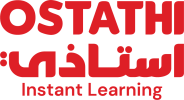Simulation-Based Medical Education in Jordan: Paving the Way for a Future-Ready Healthcare Workforce
Jordan is taking a significant step forward in advancing healthcare education by launching a nationwide conversation around simulation-based medical training. This initiative reflects a broader commitment to improving clinical outcomes, enhancing healthcare workforce preparedness, and aligning educational systems with global best practices.
The discussion began with a national forum in Amman organized by the Royal Health Awareness Society (RHAS), in partnership with the Jordan Medical Association (JMA), Jordan University of Science and Technology (JUST), and Al-Ahliyya Amman University. The event brought together healthcare professionals, educators, policymakers, and academic institutions to explore how simulation technologies can revolutionize medical education in Jordan.
What is Simulation-Based Medical Education?
Simulation-based medical education (SBME) offers hands-on, risk-free training environments where students and professionals can develop and refine their clinical skills. By allowing repeated practice of critical procedures in controlled settings, SBME reduces real-world errors and promotes safer patient care. It also encourages a shift toward competency-based learning, a model that aligns with international accreditation standards in medical education.Priorities for Jordan
As Jordan works to expand its simulation infrastructure, key priorities include:- Investing in advanced simulation technologies.
- Training faculty in effective simulation methodologies.
- Integrating simulation into university curricula across all health disciplines.
Global Partnerships and Opportunities
Global organizations such as UNESCO and USAID have expressed interest in supporting reforms that align with the Sustainable Development Goals (SDGs), especially those related to teacher education and professional training frameworks. These partnerships bring international expertise and funding opportunities that can help accelerate innovation in Jordan’s health education sector.
Interdisciplinary and Collaborative Learning
A simulation-based approach also opens new avenues for interdisciplinary learning, involving not only medical students but also nurses, paramedics, pharmacists, and allied health professionals. This integrated model fosters collaboration and teamwork — skills that are essential in real-world healthcare environments.
Toward a Future-Ready Healthcare Workforce
Jordan’s push toward simulation-based education marks a forward-looking commitment to excellence in health training. As dialogue continues among stakeholders, the goal remains clear: to prepare a new generation of healthcare professionals equipped with competence, confidence, and adaptability in an ever-evolving medical landscape. Read More: Simulation-Based Medical Education in Jordan: A National Conversation Begins






